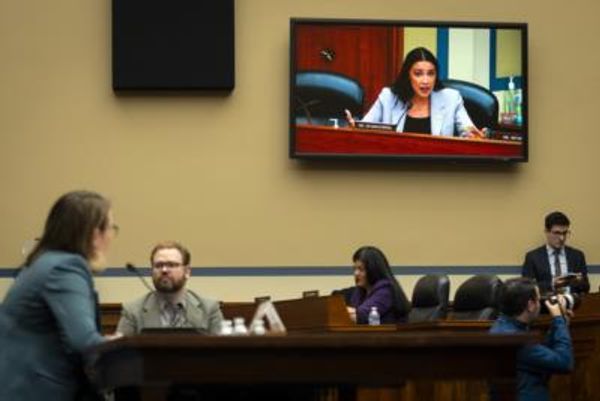
It’s official: News Corp’s Foxtel is on the market. The bargain basement sale of Australia’s declining pay-TV monopoliser and struggling streamer sounds the last post on the most ambitious play by Rupert Murdoch.
Once central to the Murdoch dream, Foxtel now no longer fits. It’s just the last piece left over from Rupert’s grand 1990s vision to build a global television subscription network, dominating the supply chain from content creation to distribution, burrowing into your eyeballs through your wallet.
It’s unlikely Foxtel will long outlast the sell-off, with the rumoured private equity buyer expected to do what private equity does: strip it for parts. Sell what it can. Milk dry what it can’t sell. Close what it can’t milk.
Just 20 years ago, Murdoch’s global vision seemed within his capacious grasp. In Australia, Foxtel had beaten competitors to be the sole distributor at scale, with control of key sports rights (and joint ownership of the National Rugby League) essential to building audiences. He’d also secured a long-term lease to build a major production studio at Sydney’s Moore Park.
The Australian operation matched a controlling (albeit minority) stake in Britain’s BSkyB and interests in Germany and Italy. In Hong Kong, James, then the favourite son, was leading the drive to build the Asian link with the Star Television Network in eastern and southern Asia including — most audaciously — into China.
In 2003, Murdoch’s world network seemed to be coming together as he captured a controlling stake in the major missing piece: the largest US satellite distributor, DirectTV. It was an intoxicating moment, but no sooner were all the pieces laid out on the table than it began to fall apart.
In retrospect, it was probably always too big a reach for one man. The deals he’d had to make putting it together proved its undoing: by 2006 the partnership with Liberty Media’s John Malone had collapsed, and giving up DirectTV was the necessary price of getting Malone off the News Corp share register.
Next, the UK domino dropped when the phone-hacking scandal forced the Murdochs to give up their full takeover bid for BSkyB. Then the China dream ended, with Rupert selling Star China (and divorcing his third wife, Wendi Deng).
Murdoch recalibrated, splitting the broadcast distribution and production assets into 20th Century Fox before selling most of them to Disney. Foxtel was stranded, oddly bundled up with the print and digital assets in the new, much smaller News Corp.
Foxtel struggled with high costs, rapidly evolving technology and low market penetration, peaking at about 30% of households (compared to more than 80% in the US and UK). Despite the company’s political clout, it could never convince either Labor or Liberal governments to waive the anti-siphoning laws that protected free-to-air broadcasters’ priority access to sporting rights.
Faced with the innovator’s dilemma, News Corp retreated to its core competency of regulation manipulation, with a long campaign to block or neuter the National Broadband Network. As technology continued to disrupt the sector, neither the Murdochs nor News Corp’s Australian management ever quite knew what to do with Foxtel, one moment zigging to bigging it up, the next zagging to freezing it out.
In 2011 Rupert elevated the network to the centre of his Australian operations by promoting Foxtel boss Kim Williams to run the whole of News. Two years later, Williams left, pushed out by the company’s old media editors’ campaign to put newspapers back at the heart of the company.
The company then turned to consolidation. The Murdochs bought back the share of the business that Rupert had gifted to Kerry Packer as part of the settlement of the Super League wars. Ownership of Australia’s Sky News was swapped from Britain’s BSkyB and its Australian partners to News Corp Australia. Program production and distribution were merged into a new Foxtel company, two-thirds owned by the Murdochs (and consolidated into News Corp accounts) and one-third by Telstra.
News Corp played with floating Foxtel — with the hope that a recapitalisation would pay off the debts Foxtel owes to both News Corp and Telstra (including the capitalisation of unpaid services the two owners had contributed to the platform).
Too late; Foxtel pivoted to streaming, trying various iterations that have all struggled. Most global suppliers can’t be bothered releasing Australian figures, but Binge seems to sit in fourth or fifth place behind Netflix, Stan, Disney and, perhaps, Prime and Paramount+. It faces losing its most valuable product when HBO launches its own expected streamer next year.
The sports streamer, Kayo, dominates Australia’s key sports — cricket, rugby league and AFL — but sports rights are a margins business, with competition from other streamers (and from Nine) threatening to squeeze those margins as costs rise.
According to the AFR, the company is hoping to clear about $1 billion from the sale and recoup the money Foxtel owes it. Worth it to quietly bury a failed dream.







